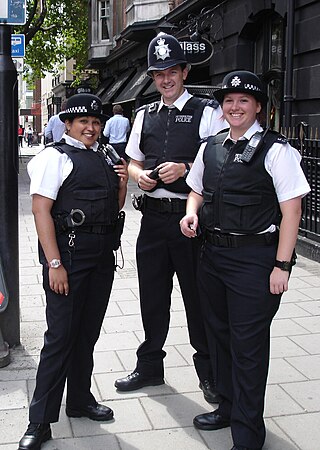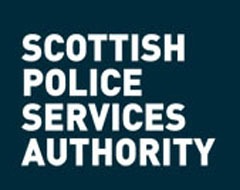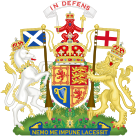
In court proceedings, a defendant is a person or object who is the party either accused of committing a crime in criminal prosecution or against whom some type of civil relief is being sought in a civil case.

The Regulation of Investigatory Powers Act 2000 (c.23) is an Act of the Parliament of the United Kingdom, regulating the powers of public bodies to carry out surveillance and investigation, and covering the interception of communications. It was introduced by the Tony Blair Labour government ostensibly to take account of technological change such as the growth of the Internet and strong encryption.
Bail is a set of pre-trial restrictions that are imposed on a suspect to ensure that they will not hamper the judicial process. Bail is the conditional release of a defendant with the promise to appear in court when required. In some countries, especially the United States, bail usually implies a bail bond, a deposit of money or some form of property to the court by the suspect in return for the release from pre-trial detention. If the suspect does not return to court, the bail is forfeited and the suspect may be charged with the crime of failure to appear. If the suspect returns to make all their required appearances, bail is returned after the trial is concluded.

Law enforcement in the United Kingdom is organised separately in each of the legal systems of the United Kingdom: England and Wales, Scotland, and Northern Ireland. Most law enforcement duties are carried out by those who hold the office of police constable of a territorial police force.

The Serious Organised Crime Agency (SOCA) was a non-departmental public body of the Government of the United Kingdom which existed from 1 April 2006 until 7 October 2013. SOCA was a national law enforcement agency with Home Office sponsorship, established as a body corporate under Section 1 of the Serious Organised Crime and Police Act 2005. It operated within the United Kingdom and collaborated with many foreign law enforcement and intelligence agencies.

The Crown Office and Procurator Fiscal Service is the independent public prosecution service for Scotland, and is a Ministerial Department of the Scottish Government. The department is headed by His Majesty's Lord Advocate, who under the Scottish legal system is responsible for prosecution, along with the area procurators fiscal. In Scotland, virtually all prosecution of criminal offences is undertaken by the Crown. Private prosecutions are extremely rare.

Lothian and Borders Police was the territorial police force for the Scottish council areas of the City of Edinburgh, East Lothian, Midlothian, Scottish Borders and West Lothian between 1975 and 2013. The force's headquarters were in Fettes Avenue, Edinburgh.

A procurator fiscal, sometimes called PF or fiscal, is a public prosecutor in Scotland, who has the power to impose fiscal fines. They investigate all sudden and suspicious deaths in Scotland, conduct fatal accident inquiries and handle criminal complaints against the police. They also receive reports from specialist reporting agencies such as His Majesty's Revenue and Customs.

The Independent Police Complaints Commission (IPCC) was a non-departmental public body in England and Wales responsible for overseeing the system for handling complaints made against police forces in England and Wales.

The Police and Criminal Evidence Act 1984 (PACE) is an Act of Parliament which instituted a legislative framework for the powers of police officers in England and Wales to combat crime, and provided codes of practice for the exercise of those powers. Part VI of PACE required the Home Secretary to issue Codes of Practice governing police powers. The aim of PACE is to establish a balance between the powers of the police in England and Wales and the rights and freedoms of the public. Equivalent provision is made for Northern Ireland by the Police and Criminal Evidence Order 1989 (SI 1989/1341). The equivalent in Scots Law is the Criminal Procedure (Scotland) Act 1995.
The Police Complaints Board (PCB) was the British government organisation tasked with overseeing the system for handling complaints made against police forces in England and Wales from 1 June 1977 until it was replaced by the Police Complaints Authority on 29 April 1985.

The Cabinet Secretary for Justice and Home Affairs, commonly referred to as the Justice Secretary, is a position in the Scottish Government Cabinet. The Cabinet Secretary has overall responsibility for law and order in Scotland. The Cabinet Secretary is assisted by the Minister for Community Safety.

The Port Moody Police Department is the police force for the City of Port Moody, British Columbia.

The Scottish Police Services Authority (SPSA) was a public body of the Scottish Government responsible for certain central services for police forces in Scotland.

Scots criminal law relies far more heavily on common law than in England and Wales. Scottish criminal law includes offences against the person of murder, culpable homicide, rape and assault, offences against property such as theft and malicious mischief, and public order offences including mobbing and breach of the peace. Scottish criminal law can also be found in the statutes of the UK Parliament with some areas of criminal law, such as misuse of drugs and traffic offences appearing identical on both sides of the Border. Scottish criminal law can also be found in the statute books of the Scottish Parliament such as the Sexual Offences (Scotland) Act 2009 and Prostitution (Scotland) Act 2007 which only apply to Scotland. In fact, the Scots requirement of corroboration in criminal matters changes the practical prosecution of crimes derived from the same enactment. Corroboration is not required in England or in civil cases in Scotland. Scots law is one of the few legal systems that require corroboration.
The Police Complaints Commissioner for Scotland (PCCS) was the executive non-departmental public body of the Scottish Government responsible for overseeing the system for handling complaints made by members of the public against the police force of Scotland. It operated between 1 April 2007 and 31 March 2013.

His Majesty's Inspectorate of Constabulary in Scotland (HMICS) is a public body of the Scottish Government and reports to the Scottish Parliament. It has statutory responsibility for the inspection of the effectiveness and efficiency of the police service in Scotland.

The judiciary of Scotland are the judicial office holders who sit in the courts of Scotland and make decisions in both civil and criminal cases. Judges make sure that cases and verdicts are within the parameters set by Scots law, and they must hand down appropriate judgments and sentences. Judicial independence is guaranteed in law, with a legal duty on Scottish Ministers, the Lord Advocate and the Members of the Scottish Parliament to uphold judicial independence, and barring them from influencing the judges through any form of special access.

The Police Investigations and Review Commissioner (PIRC) is the executive non-departmental public body of the Scottish Government responsible for investigating complaints by members of the public against Police Scotland; and the Scottish operations of the National Crime Agency, British Transport Police, Civil Nuclear Constabulary, Ministry of Defence Police, and HM Revenue and Customs.













